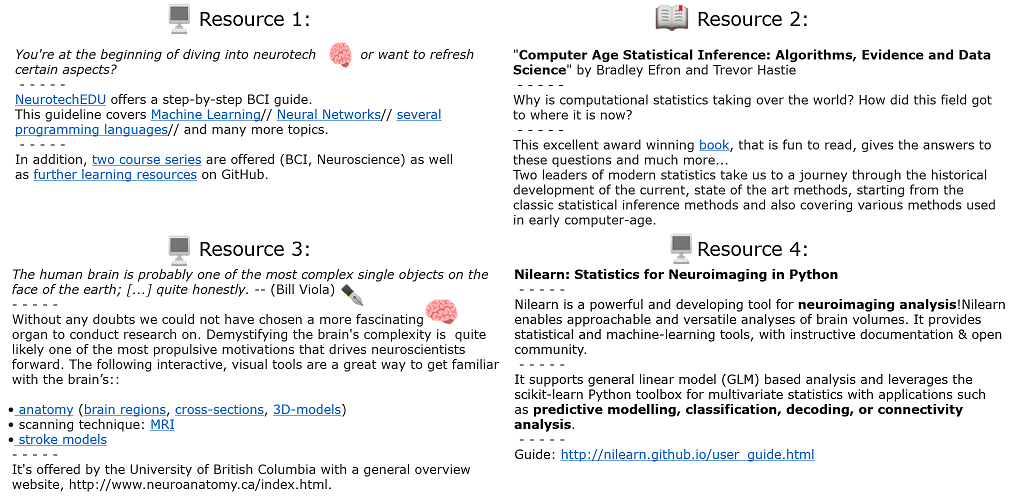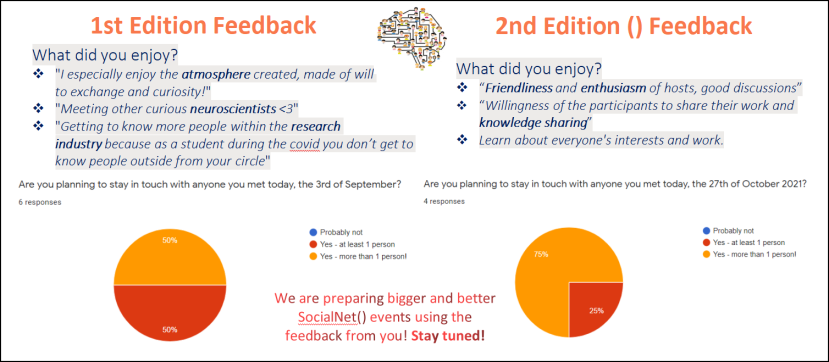A (sub)space to discuss and learn about the relationships among classical & novel multivariate and subspace analysis methods 🤓
List of Resources

Virtual talks
2021
Data Integration in Neuroimaging Studies - Benjamin B. Risk
Template independent component analysis (ICA): Using empirical population priors to extract more accurate subject-level IC maps from fMRI data - Mandy Mejia
Beyond independent component analysis: Subspace, coupled, and block decompositions - Dana Lahat
Paper discussions
Graph Signal Processing: Overview, Challenges, and Applications – A. Ortega et al.
- Link to paper
- Click here to watch on YouTube! (Duration: 1h 17m)
Data Visualization in the Neurosciences: Overcoming the Curse of Dimensionality – E. Allen et al.
- Link to paper
- Click here to watch on YouTube! (Duration: 1h 2m)
Modeling Shared Responses in NeuroImaging Studies through MultiView ICA – H. Richard et al.
- Link to paper
- Click here to watch on YouTube! (Duration: 54m)
SocialNet()
2021

Group Leader
Rogers Ferreira Da Silva Research Scientist, TReNDS Center & Georgia State University
Dr. Rogers F. Silva is a multidisciplinary scientist with extensive experience developing algorithms for statistical and machine learning, image analysis, numerical optimization, memory-efficient large-scale data reduction, and distributed analyses of big multimodal, multi-subject neuroimaging data. Interests: His research interests include · he... more
Student Volunteer Core
Members
Heba Ali Master student, Nile University
I'm from Cairo-Egypt. Working as a Research Assistant at Nile University, Master's degree student specializing in Brain Connectivity- Nile University, have a bachelor's degree in Systems and Biomedical Engineering - Cairo University and studied a Short-Term in the Biomedical Engineering department at Hiroshima University, Japan. I am interested Brain Computer Interface, Neurorobotics,Brain Signal Processing and Biomedical Engineering.
Jordan Hanania Ph.D. student, University of British Columbia
I am a Ph.D. student in Medical Physics at UBC in Vancouver, Canada, studying under Dr. Vesna Sossi. I completed my Master's degree working with the APXS instrument on-board the Curiosity rover, but decided to switch fields to studying the human brain due to its level of mystery and complexity. Beyond the science, I'm interested in philosophical questions regarding the nature of consciousness and intelligence.
My research makes use of simultaneous imaging of the brain using positron emission tomography (PET) and magnetic resonance imaging (MRI). Our group primarily focuses on Parkinson's disease, for which I am exploring measures of connectivity in the healthy and diseased brain.
Past Members
Gaia Zin Undergraduate student, Delft University of Technology
I have studied Electronics and Communication Engineering at the Politecnico of Torin (IT) and I am now at my last year of the Master degree in Electrical Engineering at Delft University of Technology (NL). I am working with EEG signals for the detection of Epilepsy, using graph signal processing. My interests are multiple and they lie at the intersection of neuroscience, signal processing and machine learning. After my Master I aim to pursue a Ph.D focusing on Epilepsy prediction or detection. I am super excited of being part of this group and cannot wait for the opportunity to grow and learn new things together!:grinning:
Carlos H. Mendoza-Cardenas Ph.D. candidate, University of Delaware
I am a data scientist with a passion for the development and application of statistical and computational methods to understand and solve complex problems. I have a strong background in digital signal processing, training and research experience with unsupervised and supervised learning methods, experience with data wrangling and data cleaning of large (>2TB) data sets, and with the execution of experiments in high-performance clusters using Slurm and batch scripts. I also have extensive experience as a Linux user and administrator. In general, I like to strike a balance between a solid theoretical understanding of the mathematical methods and the software development needed to solve problems.
Iris-Lucia Soare Ph.D. candidate, University of Edinburgh
“It is foolish to answer a question that you do not understand. It is sad to work for an end that you do not desire.” How to solve it: A New Aspect of the Mathematical Method, G. Polya
As a person and scientist, I am passionate about understanding and identifying solutions for problems of engineering, mathematics, neuroscience and philosophy. In my present work, I am applying control theory onto the brain activity network for tackling epilepsy. My background is in Mechatronics Engineering and Control Theory, having graduated at the University of Manchester, UK. I have worked with deep learning networks on neuroscience and nonlinear control challenges.
Mite Mijalkov Postdoctoral researcher, Karolinska Institutet
I am a postdoctoral researcher working with Dr. Joana Pereira at the Department of Neurobiology, Care Sciences and Society, Karolinska Institute in Sweden. I obtained my Ph.D. in Materials Science and Nanotechnology from Bilkent University, Turkey, studying the emergent collective behaviors from the interaction of autonomous mobile individuals.
Currently, I use complex networks as a tool to model the complex brain connectivity patterns that arise due to the interaction between distributed brain regions. The goal of my studies is to design more efficient and sensitive methods to understand the alterations of these complex brain networks in individuals with neurodegenerative disorders. Ultimately, the developed methods can have immense value as prognostic markers, e.g. to achieve earlier and more accurate diagnosis, identify patients with worse prognosis or assess the effects of treatment on brain connectivity.
Syed Ather Ph.D. student, University of Toronto
I'm a Ph.D. student in Medical Science at the University of Toronto where I perform research on the connectivity structures underlying schizophrenia. By applying dynamic causal modelling (DCM) to patient data, I search for insights into spatiotemporal measures of connectivity across models of connectivity. My work, based on the free energy principle, has applications in neuroethics, epistemology, and AI.
After completing my undergraduate in physics and philosophy at Indiana University-Bloomington, I performed research in bioinformatics and computational neuroscience at the National Institutes of Health (NIH) before joining the Krembil Centre for Neuroinformatics (KCNI) in January, 2021. I also have interests in science communication and philosophy.
Anjali Agarwal Researcher, Tata Research Development and Design Center
I am currently working as a Researcher in TRDDC India in the area of Behavioral, Business and Social Science domain.
I completed my bachelor's in Electrical Engineering from Indian Institute of Technology, Palakkad. During my undergraduate, I developed an interest in Computational Neuroscience, specifically Brain-Computer Interface. I aspire to apply for graduate school to work on the interface of BCI and assistive technologies.